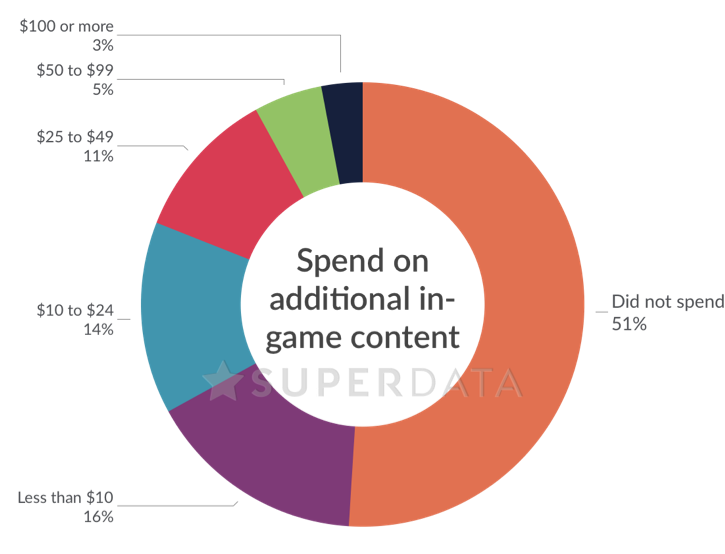As video game monetization evolves, players have grown more conscientious of where and how they spend their money. During the month of September 2019, gamers in the United States spent less money on in-game purchases than during the same period in 2018. However, microtransactions still generated a whopping $1.4B in console revenue during Q3 2019, with 49% of gamers spending money on in-game purchases during the month of September.
Developers and publishers have been conscious of their implementation of in-game monetization recently. Players have made it clear that “pay-to-win” purchases are generally not welcome, preferring cosmetic content. In addition, games have started to adopt free maps, events, characters, and updates for all players to enjoy at the same time, ditching the season pass model of paid content that segregates the player base. (Editor’s Note: Many games have adopted some kind of “Battle Pass” where players can play the game to earn premium cosmetics rewards.) This is exactly what was implemented in Call of Duty: Modern Warfare.
A chart from Super Data showing amounts of September’s in-game spending can be found below:

The chart shows that 16% of spenders fell into the “less than $10” category, while only 3% spent over $100 on in-game purchases. One of Super Data’s biggest takeaways is that players are spending less overall in games, but more in a specific one or two games proportionally.
An additional graph also shows the percentage of players spending money on in-game purchases across popular games.

Even Fortnite, one of the most popular free-to-play games in the world, still only sees 8% of players spending money in-game, while only 2% are spending in Destiny 2, FIFA 20, and Apex Legends. (Editor’s Note: Complex in-game monetization changes made to Destiny 2 on October 1 could drastically change this reporting. Destiny 2 expansions and its premium season pass ranking track that most players participate in could be considered in-game purchases in future data, which would skew these numbers.)
Despite in-game spending generating a tremendous amount of revenue across consoles and PC, players are overall spending less than in previous years. How publishers and developers interpret this data to continue making money while also appeasing consumers is the big question that will shape the future of in-game monetization. Super Data cedes that the old tried and true methods aren’t effective anymore and game makers will need to keep evolving with the times.
[Source: Super Data]








